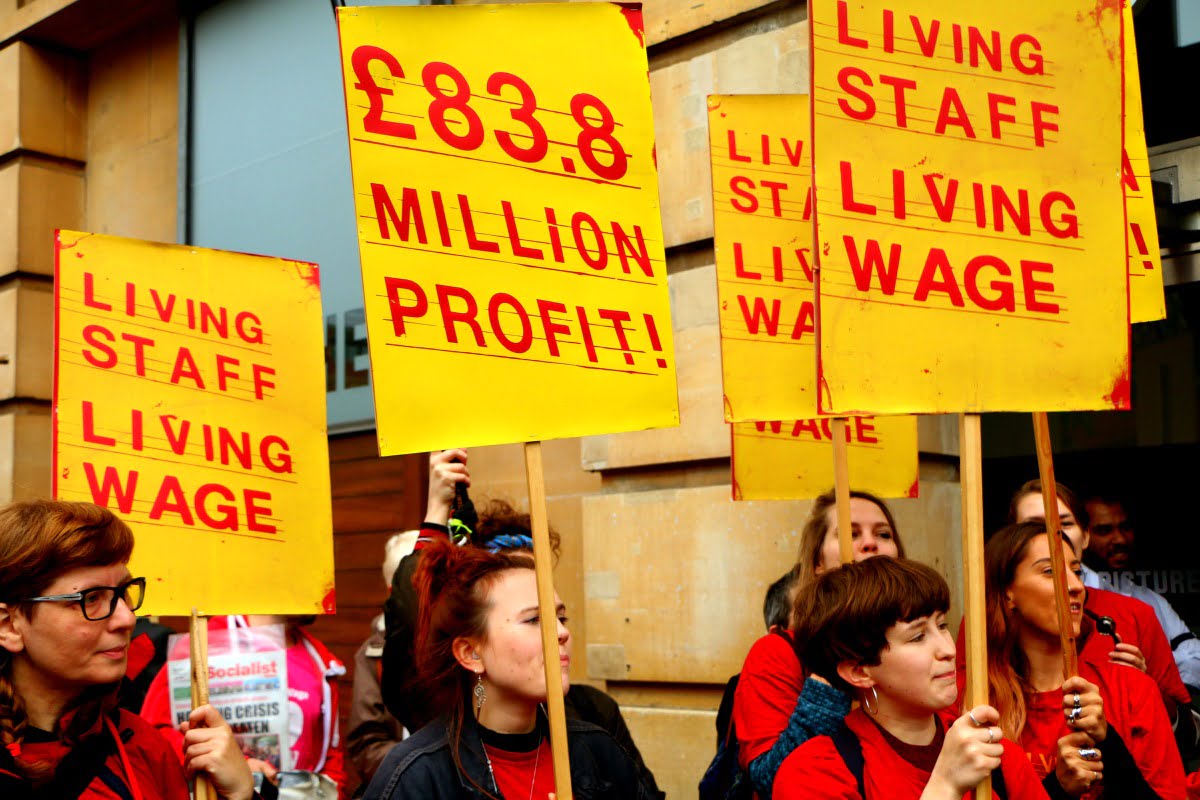On Saturday 18th March, workers at the Duke of York Picturehouse cinema in Brighton held their first strike against unfair working conditions. Six Picturehouse sites are now part of a national campaign for decent pay and conditions. We publish here a report from a worker at the Brighton Picturehouse on their fightback.
On Saturday 18th March, workers at the Duke of York Picturehouse cinema in Brighton were joined by local residents, Labour Party members, trade unionists, Green Party MP Caroline Lucas and a busload of 47 workers from other Picturehouse cinemas to form a picket line as they held their first strike against unfair working conditions.
The workers at the Ritzy Picturehouse in London have been campaigning for a living wage since 2014, following the company’s acquisition by cinema giant Cineworld in 2012. Since then, they have inspired cinema workers at the Curzon chain to mount a similar campaign, as well as the Rio Cinema, an independent cinema in Dalston, London.
The Rio campaign is fairly new and still ongoing, but Curzon workers won their fight for a living wage and union recognition in 2014, following a high profile union-backed campaign. The Ritzy Picturehouse workers, despite winning a 26% pay increase through militant strike action, are continuing their struggle to be paid the London Living Wage, as well as the right to receive sick pay, maternity pay, etc..
Four other London based Picturehouse sites have since joined the London Living Wage campaign, but, until the strike action in Brighton, staff at the regional sites had remained silent on the issue.
So, what pushed the workers at Duke of York to join the campaign? The Living Wage is only a part of the issue. The Duke of York and its employees have always been proud of the community atmosphere of the cinema; since the 2012 takeover, however, that atmosphere has been slowly eroding, as the profits of Cineworld trump all else.
In particular, Cineworld’s rush to standardise the till system across all of its sites, Picturehouse or otherwise, without any consideration for infrastructure needs, has meant significant daily IT issues on this site and others. For at least two years, managers and staff members have tried to get Cineworld to fix the problem that they have created but, despite endless promises, nothing has changed. Superficially this is an issue about inadequate internet; at it’s core, however, it is a symbol of a much larger problem – the perceived inability or refusal of the company to listen to its employees needs. This has led to a great deal of frustration and a feeling of powerlessness.
Understanding that their strength is through unity, the Picturehouse workers have unionised in order to fight back. Conscious of the potential power of workers when organised, Cineworld have refused to recognise BECTU, the industry’s main trade union, and will not meet with any union representatives. In the face of such an attitude from the bosses, militant action is the only way forward in order to win decent pay and conditions.
Whilst the Living Wage is a nationwide issue within the industry, it was the refusal of management to listen to the workers that led the staff in Brighton to take action. Since the Brighton site’s strike on the 18th, a sixth Picturehouse site has joined the now national campaign. Unless Cineworld abandons poverty pay and recognises workers right to organise, this latest addition surely won’t be the last to fight back.
The task now is to build a militant campaign, uniting workers and customers, across the whole film screening industry – from small independents to multiplex chains – which has relied for far too long now on cheap and unorganised labour to run UK cinemas.






